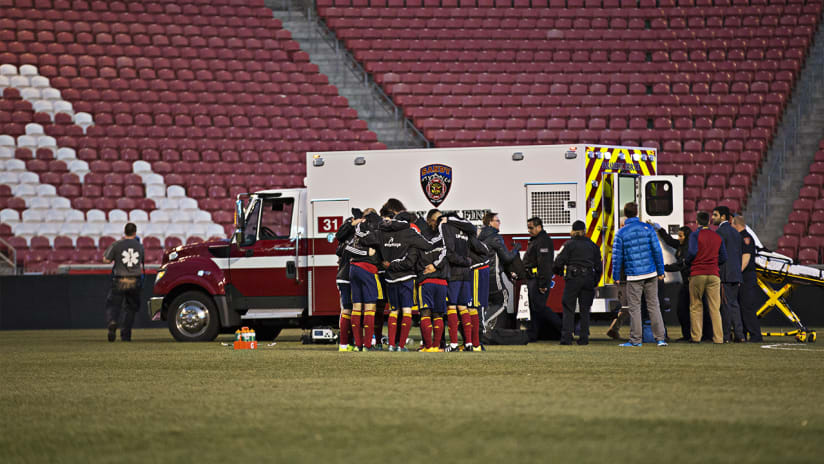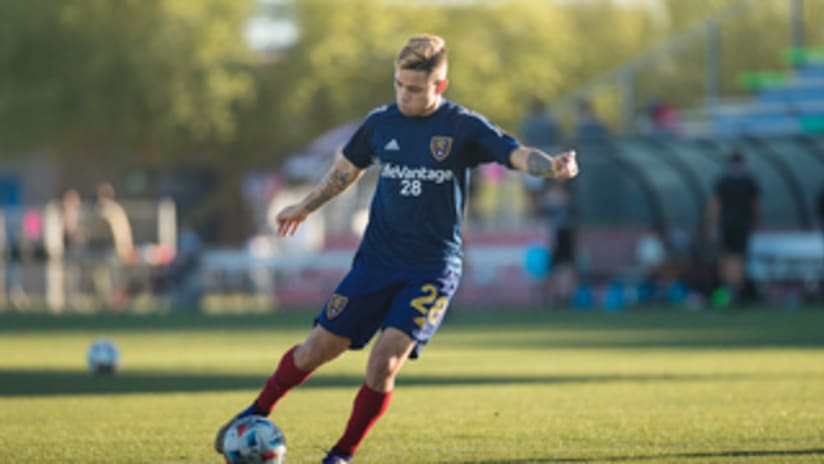When Real Salt Lake midfielder Omar Holness went to the ground on Saturday while playing on loan with Real Monarchs in the USL season opener against St. Louis FC, fans in attendance feared the worst. The 22-year-old Jamaican was suffering a seizure for no apparent reason and while he was treated quickly on the field and taken to a local hospital for further treatment and evaluation, it felt like an eternity to many in attendance.
To RSL team physician Dr. Andrew Cooper, things in the 48 hours after the seizure were much more positive as Holness has undergone testing to determine the cause, severity and risk of repeat seizures.
“The good thing is that I think this is something that it doesn’t, long-term, have a big effect and it’s not as scary as it looks, initially,” he said.
Appearing on ESPN 700’s On Frame, Cooper walked through what the moments after his seizure were like and how he was being evaluated.
“It sounds like he basically had a generalized seizure, which is kind of like an epileptic type of seizure. It lasted the better part of a minute-and-a-half to two minutes and in that process he had a shoulder dislocation in addition to that,” Cooper said on Monday. “After he was stabilized on the field he was taken to the hospital where he was evaluated and he cleared everything that evening. He had a CT scan of his head which came back clear. X-rays after the dislocation was reduced came back good. Now we’re in this process of putting all the pieces together and figure out what happened. How do we move forward? What’s the prognosis with these things? I think there are a lot more questions today than answers, but we’re getting some of these answers as we delve into these things a little further.”
Cooper praised the courage and maturity of Max Lachowecki and Devon Sandoval for clearing Holness’ airways by putting their fingers in his mouth to keep him from choking on his own tongue. That quick response went a long way toward assuring a speedy recovery for Holness.
“There is a lot of risk of airway obstruction and even biting the tongue in these scenarios. I think they really helped him by doing that,” Cooper said.
Holness will continue to be evaluated in coming weeks and while he appears clear of risk of further symptoms, his dislocated shoulder allows Cooper and his colleagues to further evaluate him at a more relaxed pace. In addition, Cooper is consulting with neurologists that specialize in seizure activity and while there is nothing that stands out that puts him at risk for more seizures, the staff is taking a careful approach.
“There is a percent of the population that will have a seizure and we don’t know why. What we try and do in this scenario is not rush to conclusions and get good information and make sure that we’re methodical in evaluating him,” Cooper said. “When you jump to conclusions it can get you in trouble. This is his livelihood and you want to be careful with that. It shouldn’t affect his ability to get back to professional soccer. But we’ve got a lot of digging to do.”



